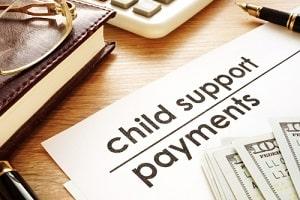Recent Blog Posts
Why Do I Need a Holiday Parenting Plan in My Illinois Divorce?

For most people, holidays are spent with relatives and friends. This may include large gatherings with extended family members or a small celebration reserved for parents to spend time with their children. Regardless of your family holiday traditions, they typically include time spent with your kids. This may seem like second-nature to married couples; however, those parents who are recently divorced must learn how to navigate these special days differently. To ensure that both parents can have quality time with their kids, it may be necessary to adjust parenting schedules during the holidays.
What Is Considered a "Holiday" By the Court?
It can be difficult for the court to address specific holidays, since they can vary based on families’ traditions and religious beliefs. However, there are guidelines provided to help those formulating parenting plans pin down what they consider a holiday. Thanksgiving and Christmas may be the two that come to mind, but there are various other holidays throughout the year that divorcing couples must consider. Holidays that result in three-day weekends, such as Labor Day and Memorial Day, can be listed as holidays in your parenting plan. Because the children are off of school, this can allow parents to spend extra time with their kids.
Open Communication Now Can Prevent Estate Disputes Later
 It is hard to believe, but the winter holiday season is just about upon us once again. While Thanksgiving evolved as a celebration of the harvest and is, therefore, a fall holiday, it is also seen by many as the first of the winter holidays that also include Christmas, Hanukkah, and New Year’s. For the next month or so, families throughout the country will be getting together to eat, drink, and honor traditions that stretch back for many generations.
It is hard to believe, but the winter holiday season is just about upon us once again. While Thanksgiving evolved as a celebration of the harvest and is, therefore, a fall holiday, it is also seen by many as the first of the winter holidays that also include Christmas, Hanukkah, and New Year’s. For the next month or so, families throughout the country will be getting together to eat, drink, and honor traditions that stretch back for many generations.
If your family will be getting together during the holidays, you might consider taking advantage of the opportunity to discuss your estate plans. Obviously, talking about what will happen after your death might not be the most comfortable discussion ever, but having the conversation now could go a long way toward preventing disputes and family infighting later.
Things to Talk About
This estate planning discussion does not need to last for many hours, nor does it need to be terribly detailed. The main goal is to let your loved ones know that you have created an estate plan and that the plan includes several important decisions. It is up to you to decide who should be included in the discussion, but most experts agree that your spouse and all of your children should be present, if at all possible.
Reasons Why a Parent Might Refuse to Pay Child Support in Illinois

When parents get a divorce, they are still responsible for taking care of their children. How this is orchestrated may change, but every child has the right to receive support from both of their parents, emotionally and financially. This is why when parenting plans are created, a judge will likely keep both parents involved in the child’s life unless there are extreme circumstances, such as abuse. Child support is how the noncustodial parent will financially contribute to the child’s well-being.
Determining Child Support
When child support is calculated in Illinois, both parents’ net incomes are considered using an "income shares" model. The numerical amount of support that parents are responsible for is based on their percentage of combined net income. The paying parent is usually the person who has the least amount of parenting time. Child support for the main custodial parent is implied. Money paid for child support goes toward basic needs, medical costs, and school expenses for the child only.
Have You Considered Digital Assets in Your Estate Plan?
 It seems that our reliance on computers and the internet grows stronger every day. If you are like most people, you probably use email, text messages, and social media to keep up with friends and family. You may pay your bills online, use your phone to deposit checks, and have loads of photographs stored on electronic devices.
It seems that our reliance on computers and the internet grows stronger every day. If you are like most people, you probably use email, text messages, and social media to keep up with friends and family. You may pay your bills online, use your phone to deposit checks, and have loads of photographs stored on electronic devices.
Have you ever thought about what will happen to your digital life after you pass away? It is becoming increasingly important to include directions about digital assets in estate plans. Failing to account for these items in your will and other estate plans can cause your surviving loved ones unnecessary stress and expense.
Take Inventory of Your Digital Assets
It can be overwhelming to consider how your digital assets should be managed after you are no longer able to do so yourself. To get started, take inventory of all of your important accounts and files. Make a list of any:
How to Handle Common Setbacks in an Illinois Divorce Case
 The divorce journey looks and feels different for every couple, with varying shades of complexity. From the amicable to the horrendous, divorces manifest in all kinds of distinct ways, depending on the circumstances surrounding the relationship and if children are involved. Something every divorce has in common, however, is that they are all emotionally charged events by nature. Regardless of how civil both parties are with one another throughout the process, everyone involved is bound to experience emotional pain and discomfort, especially as the divorce proceedings develop. Difficult issues can arise that must not only be discussed but also resolved between both parties in order to make progress and move forward.
The divorce journey looks and feels different for every couple, with varying shades of complexity. From the amicable to the horrendous, divorces manifest in all kinds of distinct ways, depending on the circumstances surrounding the relationship and if children are involved. Something every divorce has in common, however, is that they are all emotionally charged events by nature. Regardless of how civil both parties are with one another throughout the process, everyone involved is bound to experience emotional pain and discomfort, especially as the divorce proceedings develop. Difficult issues can arise that must not only be discussed but also resolved between both parties in order to make progress and move forward.
Typical Setbacks and What to Do When They Happen to You
Conflicts, even small ones, are inevitable throughout the divorce process. Here are some issues that commonly cause setbacks for both parties during the transition and how to address them when they happen to you:
What Are Some Unusual Reasons for an Illinois Divorce?

We are all familiar with common reasons for why people choose to end their marriage. A divorce can be brought on for many reasons, such as infidelity, lifestyle conflicts, financial disputes, or simply two spouses growing apart. No matter the reason, getting a divorce is a long process with challenges along the way. Given that some people have unusual reasons for getting divorced, legally terminating your marriage can be a complicated process. That is why it is important to understand Illinois laws regarding divorce. In addition, you should have professional legal assistance to make sure your rights are protected throughout the proceedings.
Illinois Divorce Law
In an Illinois divorce, one party will have to start the process by filing for a petition for dissolution of marriage. The person who filed is known as the petitioner, and the other spouse is the respondent. For an Illinois divorce to be granted, the marriage must be filed in the state, and both the respondent and the petitioner must be living in the state for 90 days. The divorce papers are served to the other spouse, and he or she has a certain amount of time to respond.
Three Signs That Your Child is Struggling With Your Illinois Divorce

Whether your child is in elementary school or is an adolescent in high school, they may experience the same emotional roller coaster that parents do when their family is going through a divorce. No matter how amicable or peaceful the decision to separate may be between parents, no one in the family journeys through the divorce process entirely unaffected. If your child is exhibiting certain signs, he or she may be having difficulty with the divorce. As a parent, it is important not to ignore these behaviors and instead address them head-on in order to maintain a healthy relationship with your child.
Recognizing When Your Child Is Having Trouble Coping
While studies show that civil, respectful relationships between divorced spouses can help support healthy healing for children of divorce, the emotional impact of the breaking of the family unit is still hurtful. Trouble coping is natural and to be expected in the midst of a family divorce, but if you notice any of the following changes in your child’s life on a day-to-day basis, it may be a sign that they are having an especially hard time adjusting to the change:
What You Should Know About Incentive Trusts
 Wouldn’t it be nice if every individual was fiscally responsible and able to make good decisions about money? Of course it would be, but, sadly, that is the world we live in. In reality, countless people have a tough time with their finances and establishing healthy spending habits. For people like this, money tends to burn a hole in their pocket, so to speak, and is often spent in frivolous ways-at least according to their family members and friends.
Wouldn’t it be nice if every individual was fiscally responsible and able to make good decisions about money? Of course it would be, but, sadly, that is the world we live in. In reality, countless people have a tough time with their finances and establishing healthy spending habits. For people like this, money tends to burn a hole in their pocket, so to speak, and is often spent in frivolous ways-at least according to their family members and friends.
This issue is frequently relevant in the realm of estate planning, as those who are creating an estate plan may have concerns about leaving a large inheritance to a child, grandchild, or another heir who has shown to be bad with money. They worry that the assets that they have worked hard to accumulate will be gone quickly, but they fear that potential family in-fighting that could result from cutting the would-be heir out of the estate plan entirely. If you are facing such a dilemma, you might consider using an incentive trust.
What Does Parental Responsibility Mean in an Illinois Divorce?
 When people get divorced, they are forced to make decisions about splitting the life they built together. In most situations, this will include assets and finances. When a couple has children, this affects the above variables, but also creates new challenges during the proceedings. In most cases, an Illinois judge will keep both divorcing parents in a child’s life, but the care of that child is referred to as the allocation of parental responsibilities and will be organized through a parenting plan.
When people get divorced, they are forced to make decisions about splitting the life they built together. In most situations, this will include assets and finances. When a couple has children, this affects the above variables, but also creates new challenges during the proceedings. In most cases, an Illinois judge will keep both divorcing parents in a child’s life, but the care of that child is referred to as the allocation of parental responsibilities and will be organized through a parenting plan.
A parenting plan is an organizational system used by divorced adults with children. The plan allocates parental responsibility and parenting time, which have replaced the terms custody and visitation in Illinois law. These terms mean different things, but they do have overlap. Parenting time is quality time spent with a child. It may be playing their favorite game, providing basic necessities, and disciplining them. Having parental responsibility has more to do with decisions that affect a child's future or well-being. A parent who has parental responsibility will have parenting time. However, there may be cases in which a parent is allocated parenting time but does not have any decision-making responsibility for children.
What Are the Grounds for Divorce in Illinois?
 Has your marriage reached the point where it is no longer a healthy part of your life? A marriage can deteriorate for many reasons, but according to Illinois law, there is only one legal basis for divorce. Thanks to changes to the state’s family law statutes several years ago, a divorce can only be granted on the grounds that irreconcilable differences have pushed the marriage beyond the point of repair.
Has your marriage reached the point where it is no longer a healthy part of your life? A marriage can deteriorate for many reasons, but according to Illinois law, there is only one legal basis for divorce. Thanks to changes to the state’s family law statutes several years ago, a divorce can only be granted on the grounds that irreconcilable differences have pushed the marriage beyond the point of repair.
Understanding Irreconcilable Differences
When Illinois permitted fault-based divorce, such grounds were fairly straightforward. They included behaviors like adultery, repeated mental or physical cruelty, abandonment, and other actions that were easy to understand, even if they were difficult to prove during a divorce. Irreconcilable differences, on the other hand, are rather vague. In fact, there is no single definition of irreconcilable differences contained in the law. Instead, the phrase is understood to mean that the spouses are no longer able to remain in a marital relationship with one another.












